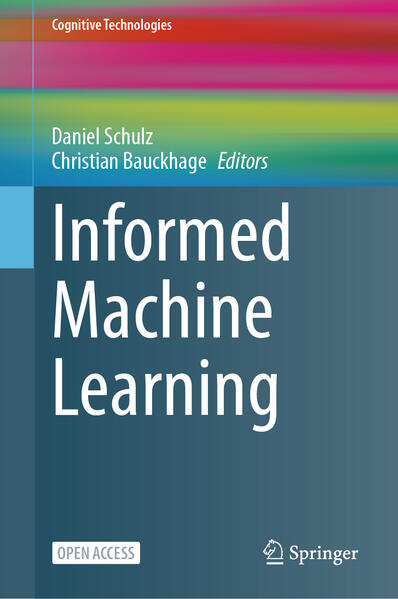
Zustellung: Do, 22.05. - Mo, 26.05.
Versand in 1-2 Wochen
VersandkostenfreiBestellen & in Filiale abholen:
This open access book presents the concept of Informed Machine Learning and demonstrates its practical use with a compelling collection of applications of this paradigm in industrial and business use cases. These range from health care over manufacturing and material science to more advanced combinations with deep learning, say, in the form of physical informed neural networks. The book is intended for those interested in modern informed machine learning for a wide range of practical applications where the aspect of small data sets is a challenge.
Machine Learning with small amounts of data? After the recent success of Artificial Intelligence based on training with massive amounts of data, this idea may sound exotic. However, it addresses crucial needs of practitioners in industry. While many industrial applications stand to benefit from the use of AI, the amounts of data needed by current learning paradigms are often hard to come by in industrial settings. As an alternative, learning methods and models are called for which integrate other sources of knowledge in order to compensate for the lack of data. This is where the principle of "Informed Machine Learning" comes into play.
Informed Machine Learning combines purely data driven learning and knowledge-based techniques to learn from both data and knowledge. This has several advantages. It reduces the need for data, it often results in smaller, less complex and more robust models, and even makes machine learning applicable in settings where data is scarce. The kind of knowledge to be incorporated into learning processes can take many different forms, for example, differential equations, analytical models, simulation results, logical rules, knowledge graphs, or human feedback which makes the approach overall very powerful and widely applicable.
Inhaltsverzeichnis
Preface. - 1. Introduction and Overview. - Part I. Digital Twins. - 2 Optimizing Cooling System Operations with Informed ML and a Digital Twin. - 3. AITwin - A Uniform Digital Twin Interface for Artificial Intelligence Applications. - Part II. Optimization. - 4. A Regression-based Predictive Model Hierarchy for Nonwoven Tensile Strength Inference. - 5. Machine Learning for Optimizing the Homogeneity of Spunbond Nonwovens. - 6. Bayesian Inference for Fatigue Strength Estimation. - 7. Incorporating Shape Knowledge into Regression Models. - Part III Neural Networks. - 8. Predicting Properties of Oxide Glasses Using Informed Neural Networks. - 9. Graph Neural Networks for Predicting Side Effects and New Indications of Drugs Using Electronic Health Records. - 10. On the Interplay of Subset Selection and Informed Graph Neural Networks. - 11. Informed Machine Learning Aspects for the Multi-Agent Neural Rewriter. - Part IV. Hybrid Methods. - 12. Training Support Vector Machines by Solving Differential Equations. - 13. Informed Machine Learning to Maximize Robustness and Computational Performance of Linear Solvers. - 14. Anomaly Detection in Multivariate Time Series Using Uncertainty Estimation.
Produktdetails
Erscheinungsdatum
10. April 2025
Sprache
englisch
Seitenanzahl
356
Reihe
Cognitive Technologies
Herausgegeben von
Daniel Schulz, Christian Bauckhage
Verlag/Hersteller
Produktart
gebunden
Abbildungen
XIII, 339 p. 98 illus., 87 illus. in color.
Gewicht
697 g
Größe (L/B/H)
241/160/25 mm
ISBN
9783031830969
Entdecken Sie mehr
Bewertungen
0 Bewertungen
Es wurden noch keine Bewertungen abgegeben. Schreiben Sie die erste Bewertung zu "Informed Machine Learning" und helfen Sie damit anderen bei der Kaufentscheidung.










